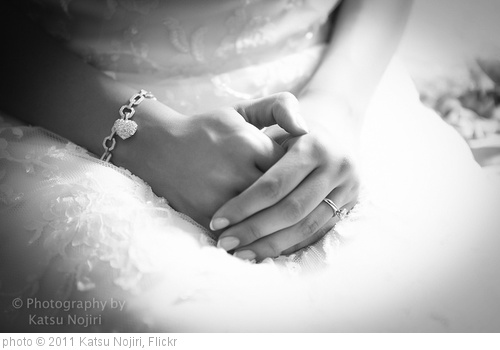Watching and Waiting: Jewish Wedding Traditions in the New Testament
When I was researching wedding traditions for the book, I discovered wedding imagery is used throughout the New Testament. Because I was previously unfamiliar with Jewish wedding customs, I had no idea all these references were present. Seeing them, though, stirred my heart to love my Savior more and to long to be with Him in a new way. So today I'd like to share these things on the blog.
So here are some of the ancient Jewish wedding customs:
First, the groom’s father would choose a bride for his son, either on his own or through a servant or messenger. If the bride’s father agreed on the marriage, they would come to terms on payment. The groom’s father was required to pay a “bride price” to the bride’s father—basically buying her for his son.
Once the terms were agreed upon, all parties would come together for the betrothal ceremony. At this point the bride price would be paid, and the bride and groom would sign a contract or covenant, called a “ketubah,” signifying their agreement to marry. They would then drink wine as a symbolic sealing of the marriage.
At this point they were betrothed. But unlike our modern engagements, being betrothed during this time basically meant you were married, only you had not yet consummated the marriage. Only death or a decision on the part of the groom’s father could dissolve the betrothal.
So after they drank the wine and signed the Ketubah, the groom would return to his father’s house and would work to build an addition onto it, preparing a home for his bride. He would continue to work, sometimes for over a year, until the day when his father approved the work and gave him permission to go and bring back his bride.
So the bridegroom would go for the bride, who was waiting expectantly, not knowing when he would arrive. He would bring her back to his father’s house where they would enjoy a feast lasting up to seven days. We get a glimpse of such a feast in John 2 at the wedding at Cana, where Jesus provides wine after it has run out too soon.
I’m sure you’re picking up on these things. The idea of Christ as bridegroom is all over the place in the NT. First, the Father chooses a bride for his Beloved Son. The love of the Father for the Son now spills out in the love of the Son for His chosen bride.
But there is a bride price. And the price is inestimably high. For the bride price the Father pays IS the Son. How much must He love the bride to pay such a price? And the value of the bride comes from the degree of love with which she is loved by the Father and the Son.
As Jesus eats the Last Supper with His disciples, He drinks the Passover wine with them and says, “this is my blood of the covenant, which is poured out for many for the forgiveness of sins. I tell you I will not drink again of this fruit of the vine until that day when I drink it new with you in my Father’s kingdom.” This is the betrothal wine. He must go to prepare a place. In his Father’s house are many mansions, so He is now preparing a place for His bride. And one day—a day even the Son doesn’t know—the Father will give Him the go-ahead to return and bring home His bride.
On that day we will feast—the Marriage Supper of the Lamb will be prepared for us. We will drink the cup and the marriage will be consummated and the union will be complete. And we say together, “Even so, COME LORD JESUS.”
When the groom would go home to prepare a house for his bride, the bride would remain to prepare herself. And when she went out around others, they all knew she was spoken for. She wasn’t looking around for a better offer. She was saving herself for her bridegroom. This was part of the betrothal agreement. She had been bought at a great price, and therefore she had to remain pure for her groom.
So it is in our case. In 2 Corinthians 11:2, Paul tells the Corinthians he feels a divine jealousy for them because he betrothed them to one husband, to present them as a pure virgin for Christ. And why on earth would we look around and let our eyes wander when we have CHRIST? After all, we have been bought with a price—the blood of Christ—and are no longer our own. It is Christ who lives in us. And through the Holy Spirit, as we look on Christ and His beauty and glory is revealed more and more to our hearts, our desires and affections for Him increase. It’s like receiving a letter from your fiancé—you can’t be with him in person, but as you long for that day your heart is drawn closer to Him through His words to you.
I pray these truths encourage your heart as they have mine. What a precious gift to find in His Word. What love and joy is ours in Him! May we live each day encouraged and strengthened by that love, as we work and wait and rest in Him.
